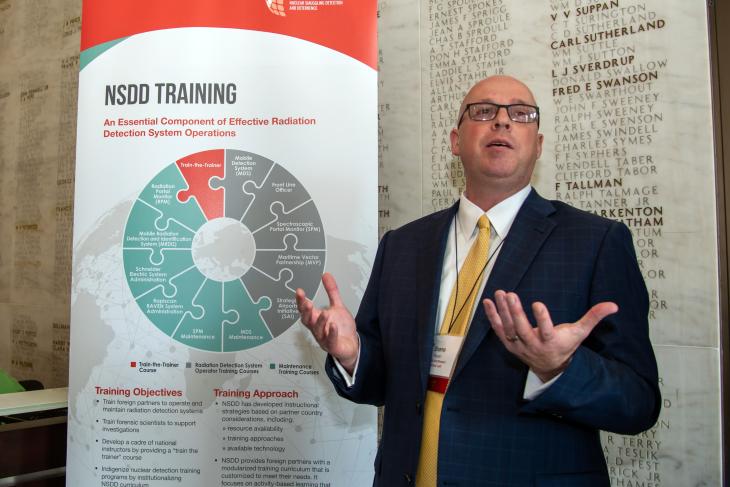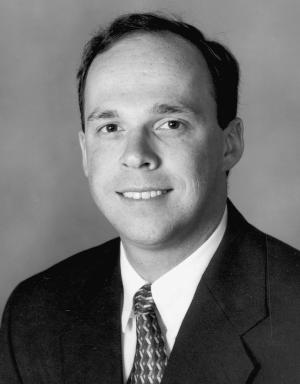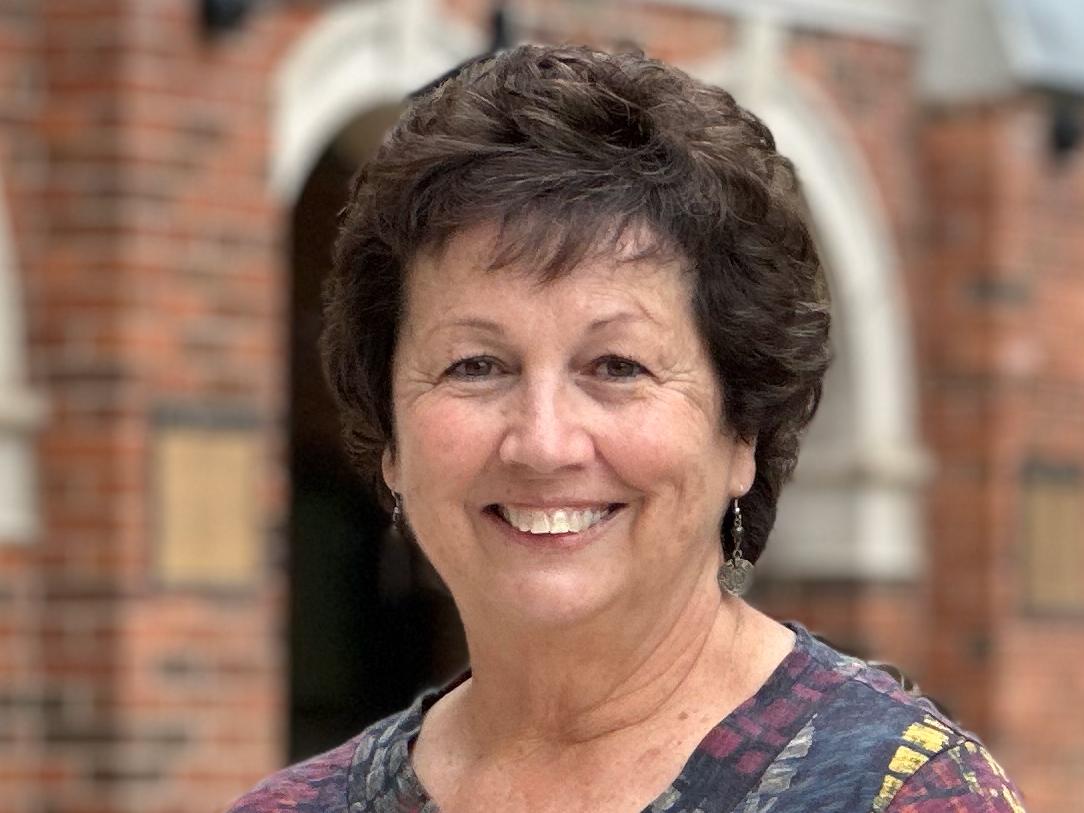When Shane Peper ’98 came to Viterbo after graduating from Onalaska Luther High School, he wasn’t sure about a career path. “I really didn’t have a plan. I just enjoyed science,” he said. “If a class looked interesting, I would take it.”
On a recent Zoom call during a visit to Missouri, Peper talked about the winding path his career has taken since his Viterbo days, a path that has taken him to at least 75 countries and now has him living in Lyon, France, where he works for INTERPOL, the international law enforcement agency, as part of a radiological and nuclear terrorism prevention unit.
Since being placed by the federal government with INTERPOL in August 2022, Peper has been working with INTERPOL member countries (there are 195 in all) as a capacity building and training officer, developing specialized curriculum related to nuclear security. “I would say I’m an expert in capacity building activities for nuclear security,” he said. “It’s one of those low probability, high consequence environments.”
Looking back three decades ago to when he started college at Viterbo, Peper never would have guessed what was in store for him.
Besides an insatiable desire to learn, he came to Viterbo with a work ethic that wouldn’t quit. One semester he took four chemistry classes, all with labs. It meant working on class work about 100 hours a week, and rather than going home to Onalaska to sleep, many nights he grabbed some shuteye on the couch in the math science reading room.
On top of his studies, Peper also worked as a manager at Bonanza Steakhouse, where he had started working as a high school freshman.
By the time he graduated, he had majors in biology and chemistry and was only one four-credit course short of graduating with three majors (general studies).
One of Peper’s chemistry professors, Ron Amel, recalled that Peper took Amel’s advanced organic chemistry class, which dug deep into polymers, a topic that figured heavily into Peper’s graduate work at Auburn University, where he earned a doctoral degree in analytical chemistry in 2003.
The year after Peper graduated from Auburn, Amel nominated him for Viterbo’s Young Alumni Award. “Shane was one of my good students,” Amel said. “He was just a hard-working, pleasant, friendly guy, the kind of student you’d love to have in class.”
“The award was very much a surprise,” said Peper, whose sister, Heather, graduated from Viterbo with a nursing degree in 1994.
Getting reconnected with Viterbo also resulted in something else unexpected. He ended up recruiting a Viterbo student, Chad Gonczy, to work with him at Los Alamos National Laboratory in New Mexico, where Peper had been given a postdoctoral fellowship in the isotope and nuclear chemistry group after graduating from Auburn. Gonczy went on, Peper noted, to become a cardiothoracic surgeon and a faculty member at Penn State University.
From Los Alamos, Peper went to the U.S. Department of Energy’s Pacific Northwest National Laboratory, a leading center for scientific discovery in chemistry, data analytics, and Earth science, and for technological innovation in sustainable energy and national security. In all, Peper worked there for almost 15 years in two separate stints.
He was at PNNL for six years first as a senior research scientist. Some of that was time in the lab as a principal investigator on National Nuclear Security Administration-funded research and development projects.
But then, always looking to expand his knowledge base, he went to a lunch-and-learn with someone who was traveling the world working to prevent smuggling of nuclear material.
“I thought that was the coolest program ever. The mission really resonated with me. I thought, how do you get involved in something like that,” Peper said. And naturally, he figured out how to get involved. “I became a road warrior, traveling the globe.”
By 2012, he was on the road 40 weeks out of the year and ready for a change. “I did one of those mid-life reassessments,” he said. “I remember thinking, maybe I should go into a career related to cancer research.”
Peper found Texas Tech University had an aggressive one-year master’s degree program in molecular pathology, which he completed in 2013. He did so well that he was recruited to become an adjunct professor, graduating on a Saturday and joining the faculty on Monday. He taught for two semesters, and while he enjoyed teaching very much, he didn’t see prospects for a tenure-track position and returned to Pacific Northwest National Laboratory.
(In his "spare time," Peper has returned to Texas Tech, though the connection is online these days. He's working on a master's degree in instructional technology.)
Back at PNNL, he worked as a nuclear nonproliferation project manager and then as a senior technical advisor for the National Nuclear Security Administration's Office of Nuclear Smuggling Detection and Deterrence and the Office of International Nuclear Security, work that led to his placement with INTERPOL.
The move to France has been a good one, with some drawbacks. For one, his wife, Wendy, a former recruiter for Microsoft and Amazon (she recruited most of the engineers who created the Kindle), doesn’t have a permit to work in France. On the other hand, she can homeschool their son (youngest of three), who was treated with a visit to Venice for his 10th birthday.
Peper also took the family on a Norwegian fjord cruise, where they encountered people speaking English in a familiar accent on the first night of the cruise. Turns out they were from Wisconsin. But wait … there’s more. They were sisters who grew up in Onalaska and they both graduated from Viterbo.
Peper’s assignment to INTERPOL is for an initial three years, and it’s hard to say what could be next for him. “Whatever it is, I can honestly say I’ve had a dream career,” he said. “It really has been amazing!”




